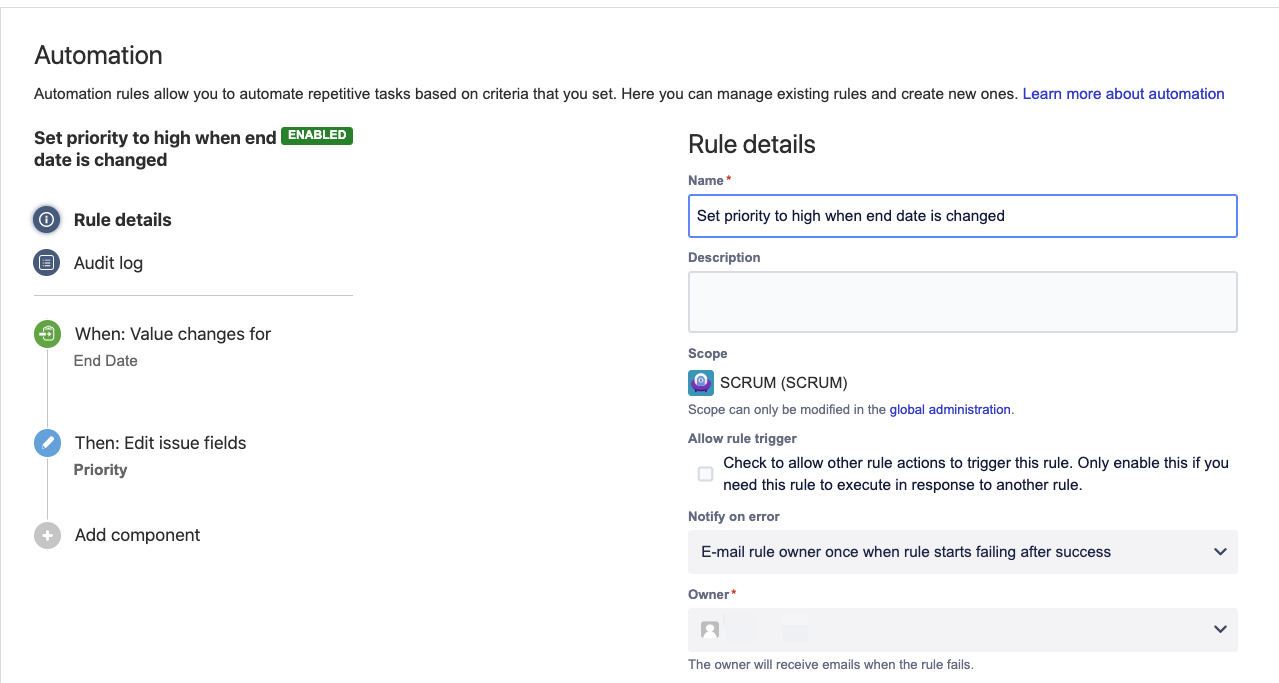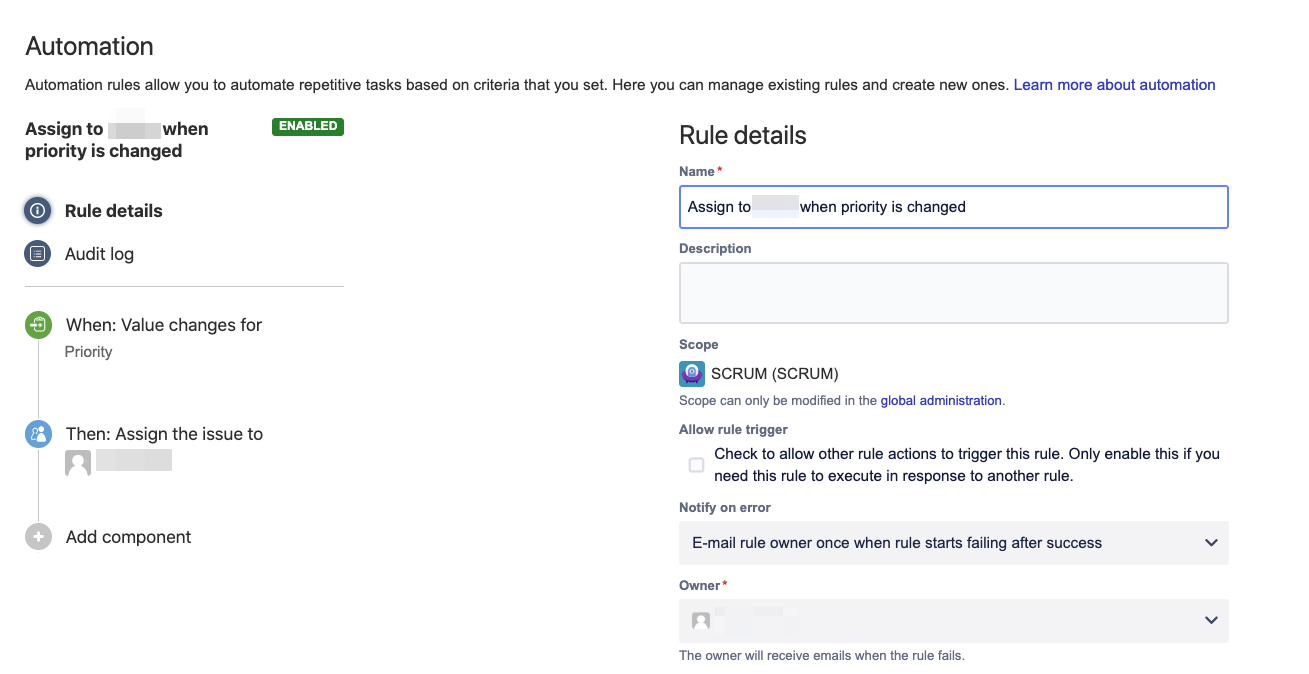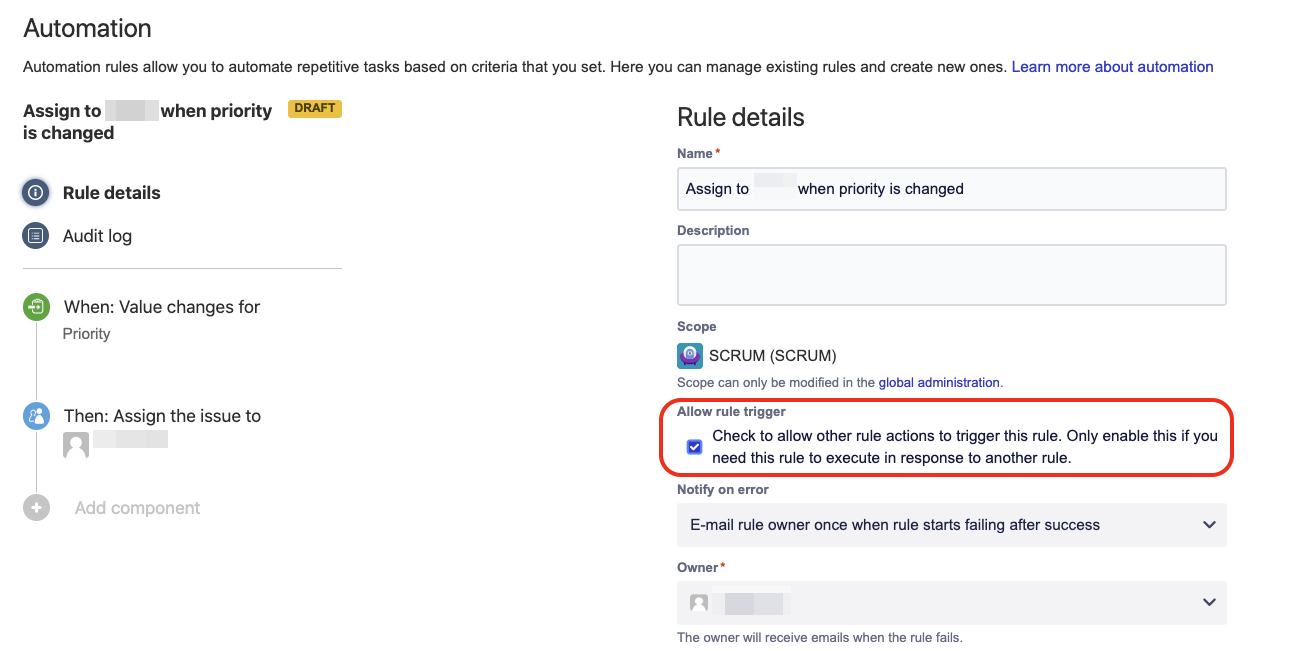Jira automation rules don't execute because trigger is a different rule
Platform Notice: Cloud and Data Center - This article applies equally to both cloud and data center platforms.
Support for Server* products ended on February 15th 2024. If you are running a Server product, you can visit the Atlassian Server end of support announcement to review your migration options.
*Except Fisheye and Crucible
Summary
Jira Automation rules don't execute when the rule trigger is the result of an action executed by another rule. Automation rules do get triggered when the trigger comes from a Jira user.
Example
Let's assume that the two following rules were configured.
Rule 1: Automatically updates the Priority field when the Due Date field is updated

Rule 2: Rule that automatically sets the Assignee field of an issue when the Priority field is updated

When using the default configuration in the Rule details section, the following will happen:
If a user manually changes the Priority field of an issue, Rule 2 will be triggered
If Rule 1 executes and changes the Priority field of an issue, Rule 2 will not be triggered, even though this rule should trigger whenever Priority is updated
Solution
By default, automation rules won't be triggered by other automation rules.
The only way to allow an automation rule to be triggered by other rules is to tick the Allow rule trigger box in the Rule details. The description of this box states:
"Check to allow other rule actions to trigger this rule. Only enable this if you need this rule to execute in response to another rule."

Was this helpful?